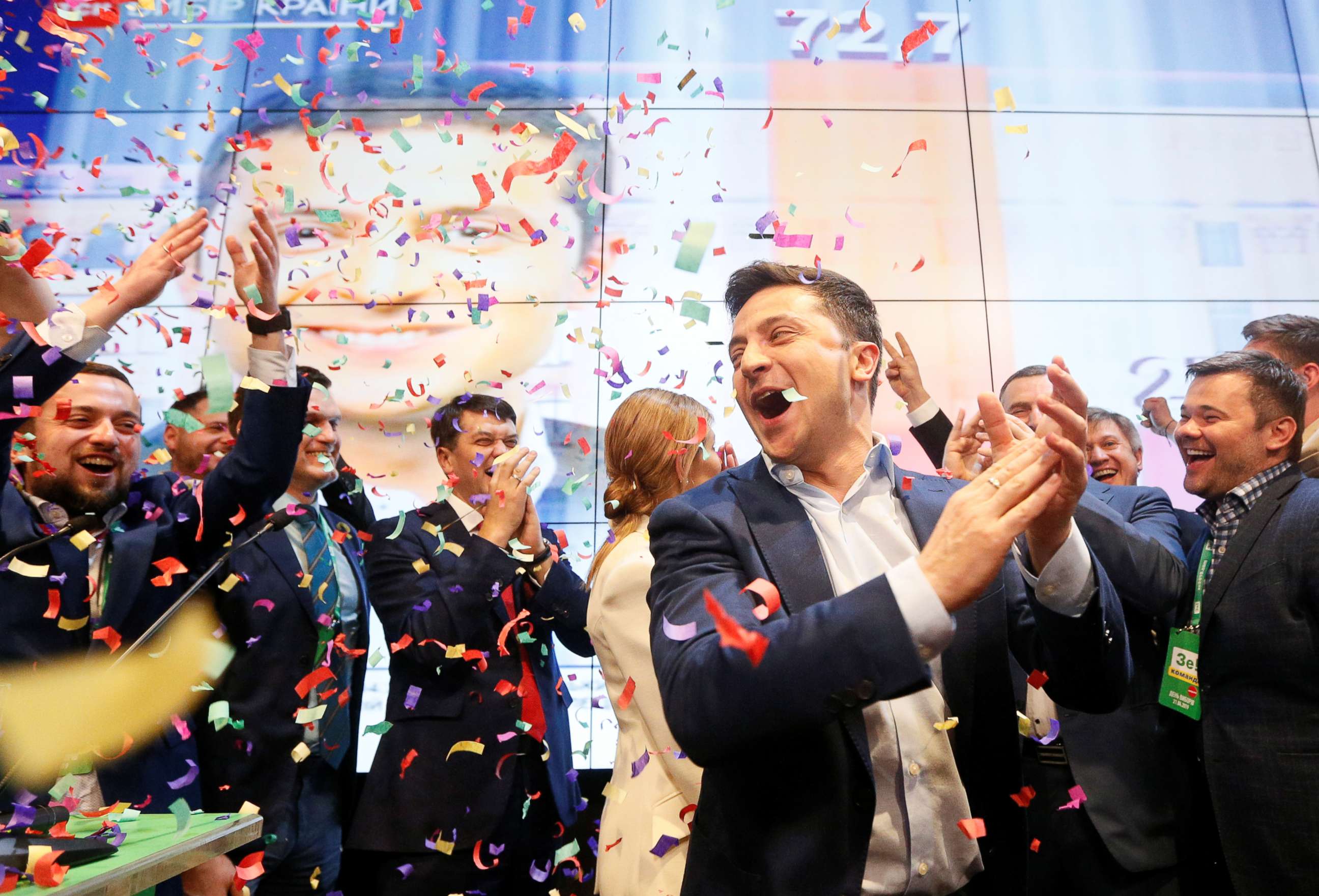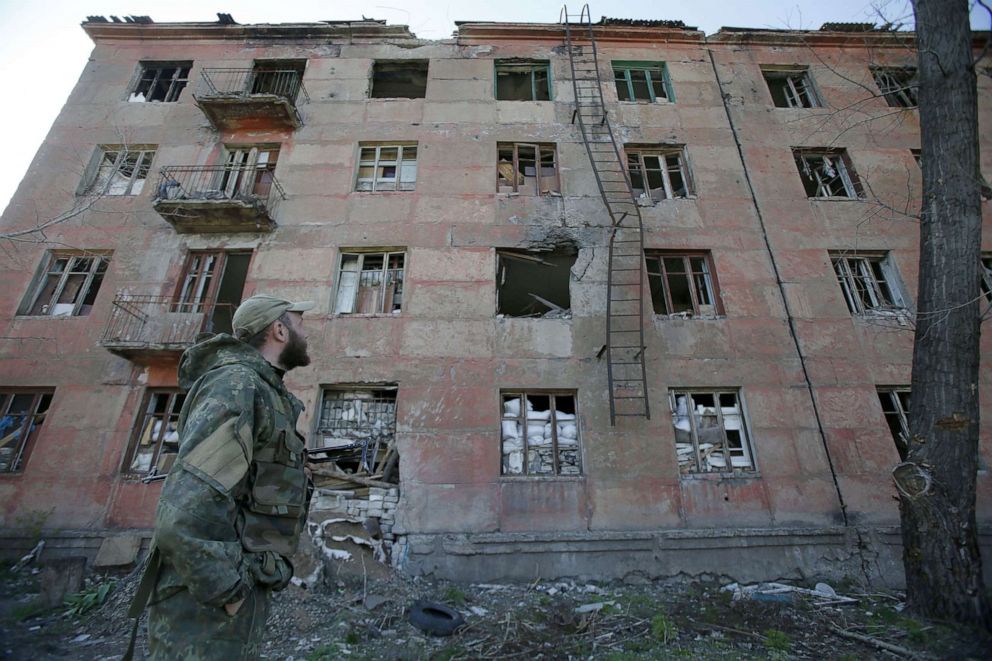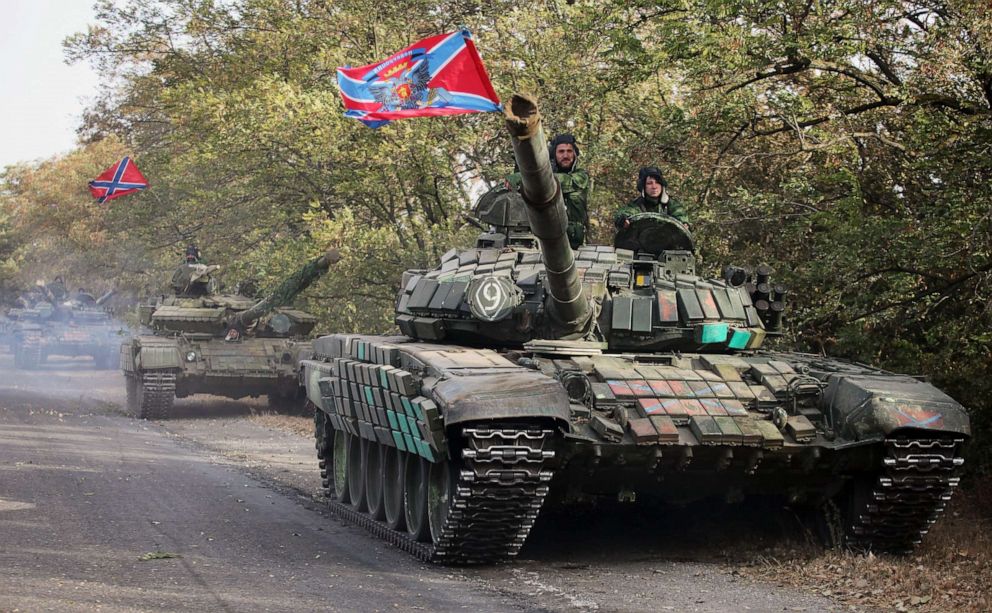Russian officials welcome comedian's win in Ukraine
A man who plays a president on TV won the presidential election in a landslide.
KIEV, Ukraine -- Russian leaders on Monday welcomed the election of Volodymyr Zelensky, the comedian who swept to victory in Ukraine’s presidential elections on Sunday, as thoughts turned to what the new president will mean for the region’s five-year conflict that remains a major flashpoint between Moscow and Western countries.
In Sunday’s vote, Zelensky handily beat Ukraine’s incumbent president, Petro Poroshenko, taking 73 percent of the vote with the count almost complete on Monday evening.
Zelensky, who has no political experience and plays a man who accidentally becomes president in a television show, tapped a huge reservoir of dissatisfaction among Ukrainians with their political establishment, promising to root out corruption and overhaul the country’s politics.

On Monday, Russian officials expressed satisfaction at Poroshenko’s defeat and some optimism about Zelensky. In a sign that Moscow hopes he will be easier to handle than Poroshenko, Russia’s prime minister, Dmitry Medvedev, congratulated Zelensky on his victory and said he believed his election offered a chance for Ukraine and Russia to improve relations.
"Ukraine has voted, and the election results clearly show that voters are eager for new approaches to resolving Ukraine’s problems,” Medvedev wrote on his Facebook page. "I have no doubt that Ukraine’s new leader will stick to the rhetoric toward Russia he used during the campaign. At the same time, there is still a chance for Ukraine to improve its relations with Russia.”
Russian officials have made no secret of their desire to see the back of Poroshenko, who built his presidency on blocking Russia’s encroachment in Ukraine’s east and pursued a radical break with Moscow. Some experts believe Russian hopes that Zelensky’s more moderate attitude and desire to put an end to the fighting might allow the Kremlin to move to a new cooler phase in the conflict, helping it get out from Western sanctions.

Poroshenko, who conceded quickly on Sunday, warned that Russia will seek to use Zelensky’s win to begin pulling Ukraine back into its sphere of influence.
“You may just look at the celebrations in the Kremlin on the occasion of the elections. They believe that with a new inexperienced Ukrainian President Ukraine could be quickly returned to Russia’s orbit of influence,” Poroshenko wrote on Twitter.
Zelensky, however, has promised to maintain Ukraine’s pro-European course and there are also signs Zelensky will not necessarily be easier to deal with for the Kremlin. On Sunday he promised to make the return of 24 Ukrainian sailors who were seized close to Crimea last fall an early priority of his administration. He also painted his victory as a lesson for a region dominated by autocrats, where elections offer no real competition.
“I'm not yet officially the president, but as a citizen of Ukraine, I can say to all countries in the post-Soviet Union: look at us,” he said in his victory speech.
The Kremlin’s reaction to his win was guarded, with Vladimir Putin’s spokesman, Dmitry Peskov, telling reporters Monday it was too early to congratulate him.
Zelensky’s "victory is not victory for [the] Kremlin,” Dmitry Trenin, the well-connected director of the Carnegie Moscow Center wrote on Twitter. But, Trenin wrote, there was a chance to lower tensions.

Western leaders were quick to congratulate Zelensky, with France’s Emmanuel Macron and President Donald Trump calling him on Sunday. Germany’s Chancellor, Angela Merkel, called Zelensky on Monday and invited him to Berlin.
The issues facing Zelensky at home are daunting, and they remain an open field since he proposed almost no detailed policies during his campaign. He also largely avoided the media, refusing interviews.
Zelensky, though, has won the backing of many of the liberal reformers and civic activists who emerged out of Ukraine’s 2014 revolution. The group, which includes a former economy minister, Aivaras Abromavicius, have taken it upon themselves to advise Zelensky, hoping to help him build an administration.
For now though, Zelensky, despite years in the public eye as a performer, remains an unknown quantity.
Before the election some turned to watching Zelensky’s show, “Servant of the People” (which is now on Netflix), hoping to gain some clues about the candidate. Now in its third season, the show has already played out some scenarios the new president will encounter.
In one episode, Merkel calls Zelensky’s character to inform him the European Union has decided to make Ukraine a member. Zelensky is ecstatic, until Merkel realizes she has made a mistake – she thought she was calling Montenegro.




